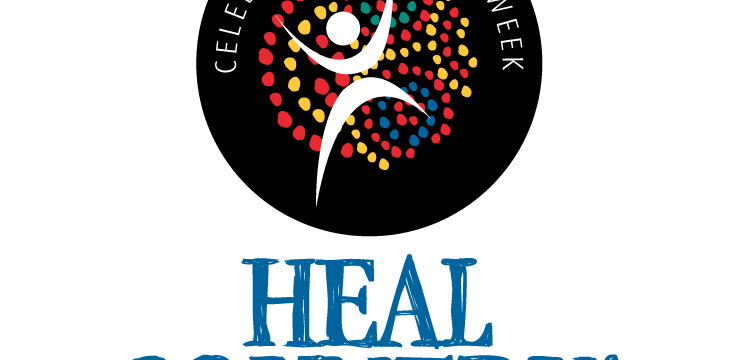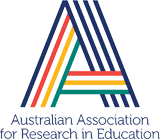
Gawaian Bodkin-Andrews1, Shannon Foster, and the D’harawal Traditional Descendants and Knowledge Holders Circle.
1University of Technology Sydney
In any attempt to understand or engage with this year’s NAIDOC theme, Heal Country (https://www.naidoc.org.au/get-involved/2021-theme), one thing should be abundantly clear, Country [with a capital ‘C’] ‘is more than just a place.’ Country is not just some siloed off block of land that an individual can claim sole ownership of whilst thumping away on their plastic keyboard. It is not just an economic space that can be flattened and divided only to be mindlessly sold for ever increasing profits. It is not just a resource to be plundered, dug into, blown apart, and raped of its ‘precious’ minerals. Since colonisation, Country has been forced to sadly become all of this, but we must never forget that Country is much, much more.
We’ve recently had the honour and pleasure to have my academic work intersect directly with the kindness and wisdom of Elders from the D’harawal Traditional Descendants and Knowledge Holders Circle. We are essentially exploring the depths of Knowledges embedded within our D’harawal Garuwanga (Ancestral Dreaming) Stories and Elders’ Narinya (Living Experiences) Stories. As part of this project, one the most reoccurring and powerful themes to emerge, regardless of the Story told, is that of Country itself, and our connections to Country.
I think about all the Stories and the power that it gives us in the next generations because there's a stark difference between people who may be on Country, or of Country, but they don't have the Ancestral understanding… that understanding of Country, and that connection and knowledge of Country. I think that's what supports who we are and our identities and our culture… (Beela the Black Cockatoo – Yarning Circle 12 - The Narinya Story of Moolby, 25/03/21).
This in-part is reflected within the NAIDOC theme, as it explains that Country for Aboriginal and Torres Strait Islander peoples is inherent to our identities. “Country is family, kin, law, lore, ceremony, traditions, and language.” And for us, stemming from the teachings of our Elders, Country can also be understood to be the first teacher, the first mother, the first Elder, the first Storyteller whose voice must always be heard and respected.
Tragically the ongoing forces of colonisation have forged a different and far too often abusive relationship with Country. And this relationship clearly distorts how Country can be understood. Whilst there are many accounts of how early Colonial Invaders struggled to survive on Country, even some of the more gratuitous accounts reveal the abuse to come. Take for example the early writings of Watkin Tench (2012/1788, p.70) who stated that:
“The general face of the country is certainly pleasing, being diversified with gentle ascents, and little winding valleys, covered for the most part with large spreading trees which afford a succession of leaves in all seasons”
This appreciation though was quickly tempered by the colonial mindset, as the trees are described to be of “so bad a grain as almost to preclude a possibility of using it” (p. 71), that the spots they have chosen for agriculture “have hitherto but ill repaid our toil” (p.71), and that while the grasses grow with the “greatest vigour and luxuriancy” they are found to “agree better with horses and cows than sheep.” We would argue that any relationship that is defined solely by what one can impose (and extract) upon it, is no relationship at all.
It is here we are reminded of the seminal work of Noonuccal and Bidjara scholar Karen Martin (2008, p. 127), whose words should remind us of our responsibilities to Country and to each other:
“For Aboriginal People, being in someone else’s Country is akin to visiting them in their homes and requires the same levels of respect. It is essential, and non-negotiable that to ‘come amongst’… is to not only to learn about them, but equally so, they could learn about me” (Martin, 2008, p.127).
As already stated, Country is a Storyteller whose deepest lessons are still embedded within many of our D’harawal Garuwanga (Ancestral Dreaming) Stories. For example, consider the D’harawal Story of the Flannel Flower (Talara’Tingi) which speaks of a time when the sun was no longer seen by children. Consider the Story of the Gymea Lilly (Kai’mia) which speaks of rebellious young men who were swallowed by the earth itself. Consider the Story of Sow and Pigs Reef (Boora Birra), where a great storm saw the sea waters flood the flat-lands and valleys to become what is now known as ‘Sydney Harbour’.
Each of these Stories hold many important lessons from Country, but shared by each Story is the lesson that we must not forget Country’s laws, we must continually listen to Country’s Stories, to what she is trying to teach us. So next time you sit in front of some plastic electronic box which screams to you warnings of bush fires, droughts, floods, viruses and the like, take off your leather shoes and step outside. Feel the cold lifeless concrete under feet, observe the smothering grey bitumen roads that reflect the sun’s heat, look across at your imported Sir Walter Buffalo grass or colourful rose-beds (with the herbicides and insecticides used to maintain them) and think, whose Story am I hearing? Whose Story am I respecting?
References
Martin, K. (2008). Please Knock Before you Enter: Aboriginal Regulation of Outsiders and the implications for researchers. Teneriffe, Queensland: Post Press.
Tench, W. (2012/1788). Text Classics: Watkin Tench, 1877. Melbourne Australia: Text Publishing.
